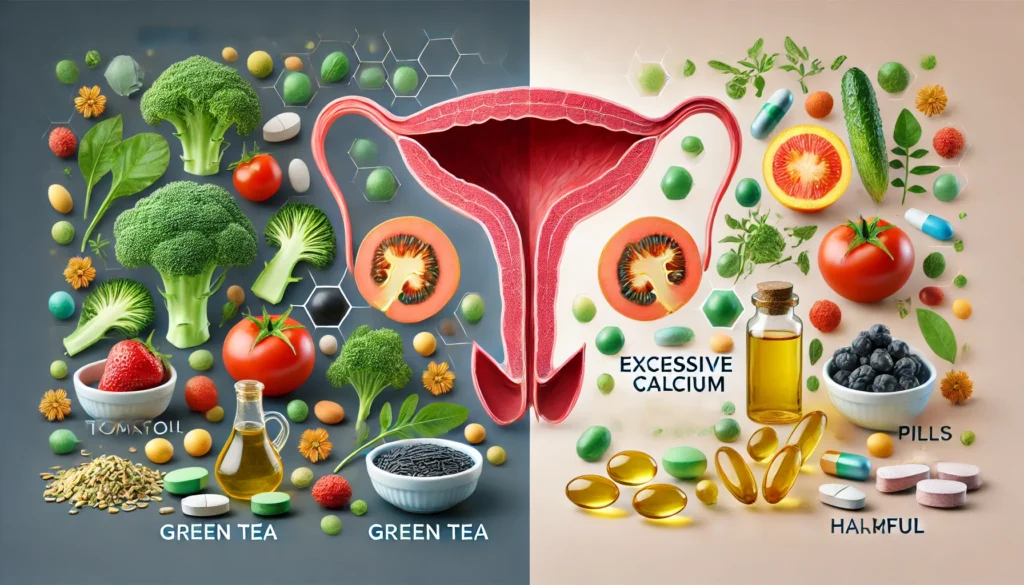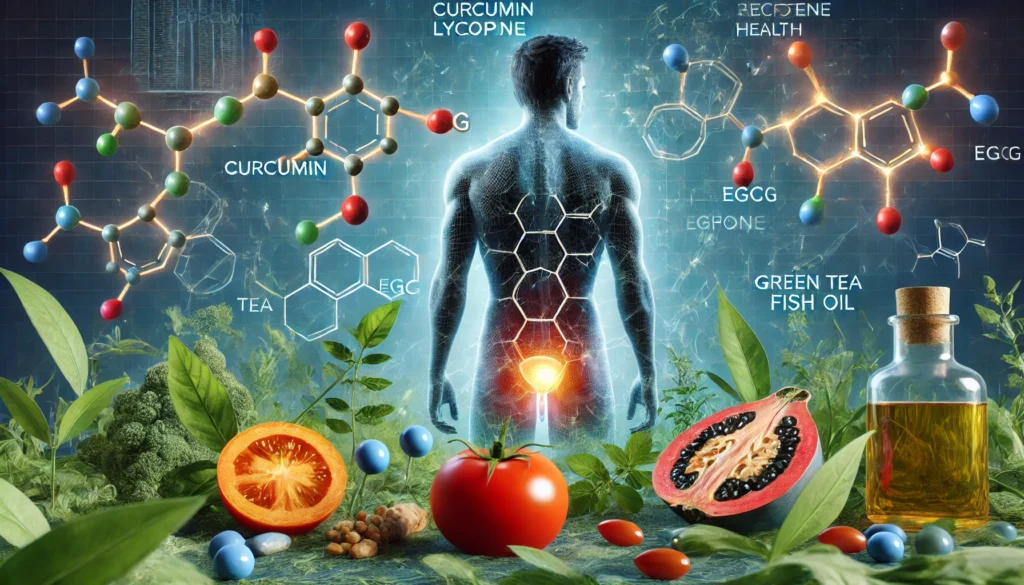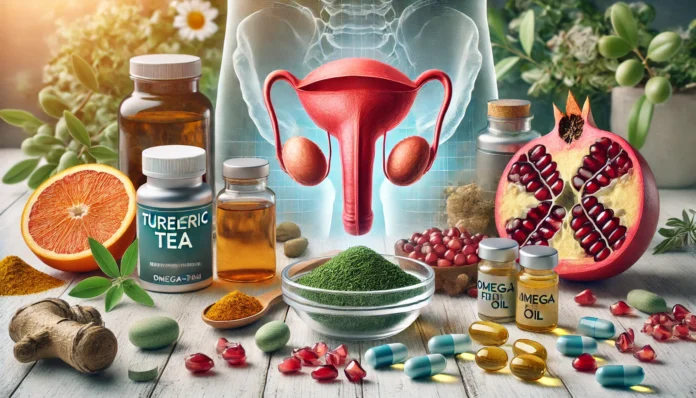Understanding PSA and Its Role in Prostate Health
Prostate-specific antigen (PSA) is a protein produced by the prostate gland, and it serves as a key marker for prostate health. While elevated PSA levels do not always indicate prostate cancer, they can signal inflammation, benign prostatic hyperplasia (BPH), or other prostate-related conditions. Managing PSA levels is crucial for maintaining overall prostate health, especially for men over 50. Many individuals seek natural ways to reduce PSA, and supplements have gained significant attention as potential aids in this regard. However, not all supplements are beneficial, and some may even increase PSA levels.
You may also like: Best Strength Training Routine for Men: How Prostate Health Supplements Support Muscle Recovery and Performance
What Supplements Can Increase PSA Levels?
Before exploring the best supplements to lower PSA levels, it is essential to identify which supplements may contribute to elevated PSA. Certain dietary supplements, particularly those that influence testosterone metabolism or stimulate prostate tissue, can have unintended consequences.
DHEA (Dehydroepiandrosterone) is a hormone precursor that plays a role in testosterone production. While some men take DHEA supplements to improve energy and muscle strength, it can also lead to increased PSA levels by stimulating prostate tissue. Similarly, excessive intake of zinc, often touted for its immune-supporting properties, can disrupt hormonal balance and potentially elevate PSA.
Calcium supplementation, especially in excessive amounts, has been associated with a higher risk of prostate cancer progression. Studies indicate that while dietary calcium from food sources may not pose a significant risk, high-dose calcium supplements could be problematic. Additionally, certain herbal supplements, including saw palmetto and pygeum, may have mixed effects, with some studies suggesting they could lower PSA while others indicate they may mask PSA increases rather than reducing them.

Best Supplements to Lower PSA Levels
Several supplements have shown promise in reducing PSA levels and supporting overall prostate health. These supplements work through various mechanisms, including reducing inflammation, inhibiting prostate cell proliferation, and supporting hormonal balance.
1. Vitamin D
Vitamin D is essential for immune function, and emerging research suggests that it plays a protective role against prostate issues. Low vitamin D levels have been linked to an increased risk of aggressive prostate cancer. Supplementing with vitamin D may help regulate cell growth and reduce inflammation in the prostate, contributing to lower PSA levels.
2. Curcumin (Turmeric Extract)
Curcumin, the active compound in turmeric, is known for its powerful anti-inflammatory and antioxidant properties. Several clinical studies indicate that curcumin supplementation can significantly reduce PSA levels, particularly in men with BPH or prostatitis. By inhibiting inflammatory pathways, curcumin may slow prostate cell growth and prevent PSA spikes.
3. Green Tea Extract
Green tea contains polyphenols, particularly epigallocatechin gallate (EGCG), which exhibit anti-cancer and anti-inflammatory effects. Green tea extract has been studied for its ability to lower PSA levels and inhibit prostate cancer cell proliferation. Regular consumption of green tea or standardized green tea extract supplements may contribute to prostate health.
4. Omega-3 Fatty Acids
Omega-3 fatty acids, found in fish oil and flaxseeds, have been associated with reduced inflammation and improved cardiovascular health. Some research suggests that omega-3s can help lower PSA levels by reducing oxidative stress and inflammatory markers in the prostate.
5. Pomegranate Extract
Pomegranate contains potent antioxidants known as ellagitannins, which have been shown to slow prostate cancer progression and lower PSA levels. Pomegranate juice and extract supplements may be beneficial for individuals with elevated PSA levels.
6. Lycopene
Lycopene is a carotenoid found in tomatoes and other red fruits. Studies indicate that lycopene supplementation can help lower PSA levels and reduce prostate inflammation. Regular consumption of tomato-based products or lycopene supplements may be a natural strategy for prostate health.
7. Sulforaphane (Broccoli Extract)
Sulforaphane, a compound found in cruciferous vegetables like broccoli and Brussels sprouts, has been linked to cancer prevention and prostate health. Some studies suggest that sulforaphane supplementation can reduce PSA levels and support detoxification pathways in the body.
Prostate Cancer and Vitamins: What You Need to Know
While some vitamins support prostate health, others may pose risks when taken in excess. Vitamin E, for example, has been studied for its potential role in prostate cancer prevention, but some research indicates that high doses may increase prostate cancer risk. Similarly, excessive selenium supplementation has been associated with an elevated risk of aggressive prostate cancer. A balanced approach, focusing on whole-food sources of essential nutrients, is the best strategy for prostate health.
Prostate Cancer Supplements to Avoid
When it comes to prostate cancer and supplements, not all products marketed for prostate health are beneficial. Some supplements may interfere with medical treatments or provide a false sense of security.
Beta-sitosterol, a plant sterol found in some prostate health supplements, may help with urinary symptoms of BPH but does not necessarily lower PSA levels. Additionally, herbal blends containing unknown proprietary ingredients can be problematic, as their effects on PSA are not well-documented. Always consult a healthcare provider before taking supplements, especially if undergoing prostate cancer treatment.
Expert Tips for Managing PSA Levels Naturally
Beyond supplements, several lifestyle modifications can help maintain healthy PSA levels. Regular exercise, particularly strength training and resistance workouts, can support hormonal balance and reduce inflammation. A diet rich in fruits, vegetables, and healthy fats—such as the Mediterranean diet—provides essential nutrients that support prostate health. Managing stress through mindfulness practices and adequate sleep is also crucial, as chronic stress can contribute to hormonal imbalances and inflammation.

Frequently Asked Questions (FAQ) on Prostate Health and Supplements
1. What supplements can increase PSA levels?
Certain dietary supplements and vitamins may contribute to an increase in PSA (prostate-specific antigen) levels. For example, calcium supplements and excessive intake of zinc have been associated with higher PSA readings. Some herbal supplements, such as saw palmetto and certain testosterone boosters, might also impact PSA levels by influencing hormone balance. It is essential for individuals taking these supplements to regularly monitor their PSA levels, especially if they have a history of prostate concerns. If PSA levels rise unexpectedly, consulting a healthcare professional to assess supplement intake and overall prostate health is recommended.
2. What are the best supplements to lower PSA levels naturally?
There are several supplements known to help support prostate health and potentially lower PSA levels. Some of the best supplements to lower PSA levels include lycopene, a powerful antioxidant found in tomatoes, and green tea extract, which contains polyphenols that may reduce inflammation. Omega-3 fatty acids, commonly found in fish oil, have also been linked to prostate health benefits. Additionally, pomegranate extract and curcumin, a compound in turmeric, have been studied for their potential anti-inflammatory and prostate-supportive effects. While these supplements can support prostate health, lifestyle factors such as a balanced diet and regular exercise also play a crucial role in maintaining optimal PSA levels.
3. Can prostate cancer and vitamins be linked?
The relationship between prostate cancer and vitamins has been the subject of extensive research. While some vitamins, such as vitamin D, are believed to play a protective role in prostate health, excessive intake of certain vitamins like vitamin E has been associated with an increased risk of prostate cancer. Studies suggest that maintaining balanced nutrient levels is essential, as too much or too little of certain vitamins can have unintended effects. For individuals with a history of prostate cancer, discussing vitamin intake with a healthcare provider is crucial. Personalized nutrition plans can help ensure that vitamin consumption supports overall health without increasing cancer risks.
4. What are some prostate cancer supplements to avoid?
Certain supplements may pose risks for individuals concerned about prostate cancer. Prostate cancer supplements to avoid include high-dose vitamin E supplements, as some studies have linked excessive vitamin E intake to an increased risk of prostate cancer. Additionally, calcium supplementation beyond recommended levels may negatively impact prostate health. Testosterone-boosting supplements, which can influence hormone levels, should also be used with caution. It is important to rely on scientifically backed recommendations and consult a medical professional before adding any new supplement to a prostate health regimen.
5. How does diet impact PSA levels and prostate health?
Diet plays a significant role in regulating PSA levels and overall prostate health. A diet high in processed foods, red meat, and dairy products has been linked to an increased risk of prostate inflammation and higher PSA levels. Conversely, a diet rich in fruits, vegetables, whole grains, and lean proteins can help maintain optimal prostate function. Foods such as tomatoes (rich in lycopene), green tea, and fatty fish provide key nutrients that support prostate health. Including these foods while avoiding excessive saturated fats and processed sugars can contribute to balanced PSA levels and a healthier prostate.
6. Can lifestyle changes help lower PSA levels?
Yes, lifestyle modifications can significantly contribute to lowering PSA levels and promoting prostate health. Regular exercise, particularly cardiovascular and strength-training exercises, has been linked to reduced PSA levels and overall prostate well-being. Stress management techniques, such as meditation and yoga, may also positively impact prostate health by reducing inflammation. Limiting alcohol and caffeine intake can help prevent urinary discomfort and irritation. Combining these habits with the best supplements to lower PSA levels can further enhance prostate function. Maintaining a healthy weight is also essential, as obesity has been associated with higher PSA levels and an increased risk of prostate issues.
7. Are there any risks associated with taking prostate supplements?
While many prostate supplements offer health benefits, some may carry potential risks if taken in excessive amounts or combined with certain medications. High doses of zinc, for instance, may interfere with the body’s mineral balance and impact PSA levels. Some herbal supplements, such as saw palmetto, may interact with blood thinners or other medications. Individuals undergoing treatment for prostate conditions should consult their healthcare provider before adding supplements to their routine. Choosing high-quality, third-party-tested supplements can help minimize risks and ensure safe consumption. Being aware of potential interactions and following recommended dosages is key to using prostate supplements effectively.
8. How do antioxidants support prostate health?
Antioxidants play a crucial role in protecting prostate cells from oxidative stress and inflammation. Lycopene, found in tomatoes, and resveratrol, found in grapes and berries, are two powerful antioxidants that may contribute to lower PSA levels. Green tea polyphenols have also shown promising effects in prostate health research. Antioxidants help neutralize free radicals, which can contribute to cell damage and inflammation. Incorporating a diet rich in antioxidant-containing foods, along with targeted supplementation, can support prostate function and overall well-being.
9. Should men with a family history of prostate cancer take specific supplements?
Men with a family history of prostate cancer should focus on preventive measures, including a nutrient-rich diet and carefully chosen supplements. Supplements such as vitamin D, selenium, and omega-3 fatty acids have been researched for their potential role in supporting prostate health. However, it is important to avoid excessive intake of supplements that may be linked to increased risks, such as high-dose calcium or vitamin E. Regular screenings and maintaining an active lifestyle are equally important in reducing prostate cancer risk. Consulting a healthcare provider can help create a personalized supplement and lifestyle plan based on individual risk factors.
10. How often should PSA levels be checked when taking prostate supplements?
The frequency of PSA level testing depends on individual risk factors, including age, family history, and existing prostate conditions. Men over the age of 50 are generally advised to have their PSA levels checked annually. Those taking prostate supplements, particularly those containing ingredients known to influence PSA levels, should discuss testing frequency with their doctor. Regular monitoring ensures that any unusual changes are detected early and allows for adjustments in supplement intake if needed. Proactive health management, including regular PSA screenings and lifestyle adjustments, plays a key role in maintaining prostate health.

Conclusion: Making Informed Choices for Prostate Health
Maintaining optimal PSA levels requires a multifaceted approach that includes diet, exercise, and carefully chosen supplements. While some supplements have the potential to increase PSA levels, others, such as vitamin D, curcumin, and green tea extract, have demonstrated benefits in lowering PSA. Understanding the relationship between prostate cancer and vitamins is crucial, as excessive supplementation with certain nutrients can have unintended consequences. By focusing on evidence-based strategies and consulting healthcare professionals, men can make informed decisions to support prostate health and overall well-being.
prostate health tips, natural prostate support, managing PSA levels, prostate-friendly diet, best herbs for prostate health, reducing prostate inflammation, urinary health supplements, prostate wellness strategies, antioxidant support for prostate, men’s health nutrition, holistic prostate care, prostate gland protection, natural ways to lower PSA, vitamins for men’s prostate, anti-inflammatory supplements for prostate, prostate function support, best foods for prostate wellness, lifestyle changes for prostate health, prostate screening importance, preventing prostate issues
Further Reading:
How to Lower Your PSA Levels Naturally
10 Best Ways to Lower Your PSA Levels Naturally
How to Naturally Lower Your PSA Levels
Disclaimer
The information contained in this article is provided for general informational purposes only and is not intended to serve as medical, legal, or professional advice. While Health11News strives to present accurate, up-to-date, and reliable content, no warranty or guarantee, expressed or implied, is made regarding the completeness, accuracy, or adequacy of the information provided. Readers are strongly advised to seek the guidance of a qualified healthcare provider or other relevant professionals before acting on any information contained in this article. Health11News, its authors, editors, and contributors expressly disclaim any liability for any damages, losses, or consequences arising directly or indirectly from the use, interpretation, or reliance on any information presented herein. The views and opinions expressed in this article are those of the author(s) and do not necessarily reflect the official policies or positions of Health11News.


